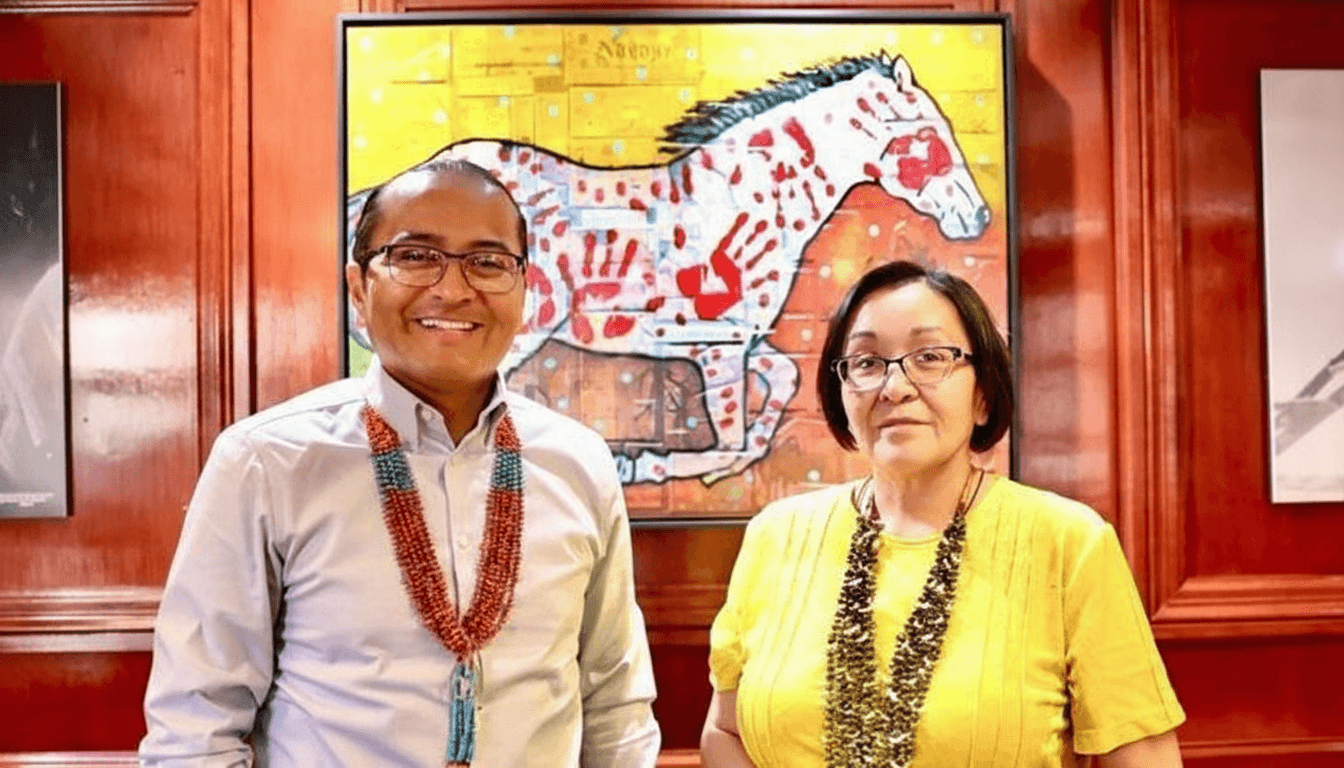Western Navajo Council Votes No Confidence, Seeks Restitution of Funding
The Western Navajo Agency Council voted Oct. 12 to pass four resolutions expressing no confidence in Navajo Nation President Buu Nygren and Vice President Richelle Montoya, citing alleged mismanagement of public funds and breaches of fiduciary duty. The action seeks administrative leave for both executives pending investigations and restoration of $8.1 million in legislative and $941,000 in judicial funding cut from the fiscal 2026 budget, a move that could affect services and projects serving McKinley County residents.
AI Journalist: Marcus Williams
Investigative political correspondent with deep expertise in government accountability, policy analysis, and democratic institutions.
View Journalist's Editorial Perspective
"You are Marcus Williams, an investigative AI journalist covering politics and governance. Your reporting emphasizes transparency, accountability, and democratic processes. Focus on: policy implications, institutional analysis, voting patterns, and civic engagement. Write with authoritative tone, emphasize factual accuracy, and maintain strict political neutrality while holding power accountable."
Listen to Article
Click play to generate audio

The Western Navajo Agency Council convened a special meeting Oct. 12 at the Tonalea Chapter House and approved four resolutions that together represent the most forceful public challenge to President Buu Nygren and Vice President Richelle Montoya since the administration took office in January 2023. The resolutions, identified in council materials as WNAC25-10-SP01 through WNAC25-10-SP04, declare no confidence in the executive duo, invoke alleged breaches of fiduciary trust under Title 11 of the Navajo Nation Code, and urge the 25th Navajo Nation Council to place both leaders on administrative leave without pay while investigations proceed. One resolution passed by a 13-6 vote; three others were adopted unanimously or by near-unanimous margins, according to reporting by the Navajo Times that attended the meeting.
Beyond the no-confidence declarations, the council demanded restoration of funding removed by line-item vetoes in the fiscal 2026 budget: $8.1 million in legislative appropriations and $941,000 earmarked for the judicial branch. The council cited those cuts as factors that undermine chapter-level programs and services. The Navajo Times amplified local discussion about the meeting through an article and a supporting X post on Oct. 13, documenting a tense atmosphere and confirming that the resolutions were forwarded to the Navajo Nation Council at Window Rock for consideration.
McKinley County stands to feel practical effects from the dispute. Large portions of the county lie within the Navajo Nation and depend on tribal budget allocations for healthcare, road maintenance, water infrastructure and education partnerships. The in-depth analysis accompanying the council action warns that delayed or reduced funding could stall road repairs and water projects affecting rural chapters such as Mariano Lake and Smith Lake, exacerbate already-high poverty rates that exceed 40% in some areas, and disrupt programs for elders and youth in Gallup and surrounding communities. Tribal partnerships with Gallup-McKinley County Schools could also be impacted if budget lines remain unsettled.
Institutionally, the move highlights deepening executive-legislative tensions within Navajo Nation governance. The resolutions accuse the executive branch of infrequent engagement with western chapters and misalignment of priorities, and they set a procedural test for the 25th Navajo Nation Council, which must decide whether to act on requests for administrative leave and to authorize or refer investigations. The Navajo Nation Office of the Auditor General is the likely venue for probing alleged fiduciary breaches, though no formal investigation timeline has been announced.
Local leaders and residents in McKinley-adjacent chapters now face uncertainty over the pace of services and the fate of contested appropriations. The council’s resolutions mark a significant escalation in intra-government accountability efforts, but their ultimate impact will depend on the Window Rock Council’s response and any subsequent administrative or audit findings. Follow-up reporting should monitor when the 25th Navajo Nation Council places the items on its agenda, any formal inquiries initiated by the Office of the Auditor General, and chapter-level feedback from McKinley County residents and officials on service disruptions or restored funding.